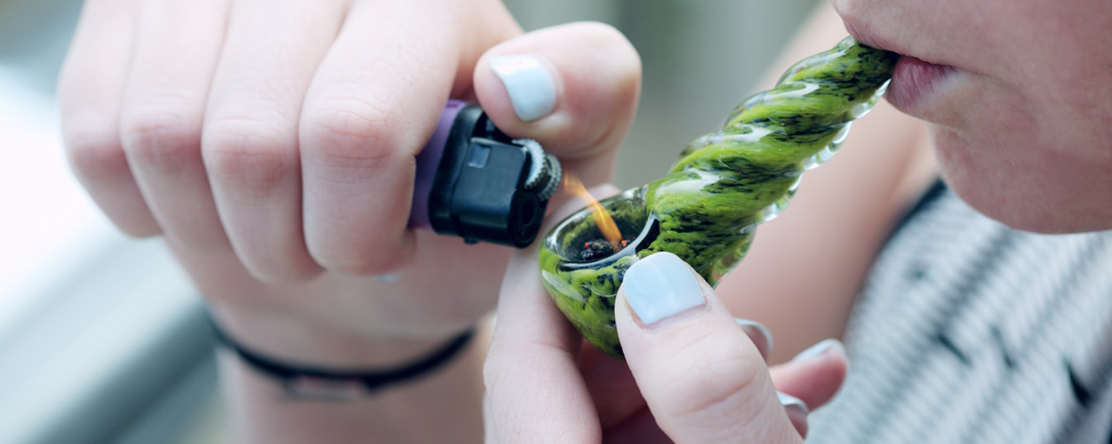
In the News
Is it True That Weed Addiction Is Becoming a Problem?
-
Focus Areas
Alcohol, Tobacco, Drugs & Mental Health -
Issues
Cannabis -
Expertise
Research – Quantitative -
Programs
Alcohol Research Group

More and more American women are using marijuana for both recreational and medical purposes as weed is increasingly accepted by society and the letter of the law. With pot on our minds more than ever, some people worry that we could have the makings of a new, nationwide addiction on our hands.
In a new article published in the Atlantic, contributing editor Annie Lowrey writes that the number of people who are using weed on a daily or near-daily basis is going up, which is cause for alarm among some public health experts. According to Lowrey, these medical professionals “argue that state and local governments are setting up legal regimes without sufficient public-health protection.” These concerned experts worry that the switch from treating cannabis as a threat on par with heroin to acting as if it’s “as benign as kombucha” is setting potential cannabis users up for addiction.
So, is weed addiction really something we should be worried about?
Despite what your skater ex-boyfriend may have told you, marijuana can be addictive. In fact, Dr. Diana Martinez, a professor of psychiatry at Columbia University’s Irving Medical Center, tells us that researchers have known this for years.
Martinez explains that studies from the last few decades show that the number of adult marijuana users who become addicted has remained at about nine percent. Compared with the roughly 25 percent of adult heroin users and 34 percent of tobacco users who will become addicted, a nine percent addiction rate may seem tame. But Martinez stresses that for the people who do wind up becoming addicted to pot, the situation is “not good.”
“Addiction is a difficult disorder to treat,” she tells us.
Though there has definitely been a rise in the total number of adults using cannabis, research suggests that legalization isn’t necessarily the cause for the uptick in usage but, rather, that widespread pot legalization is the result of people being less freaked out by weed in general. Surprisingly, a 2017 study from the Public Health Institute’s Alcohol Research Group found “no significant relationship between marijuana legalization in some states and higher rates of its use,” according to a press release for the report.
“Our findings suggest that US society has become more tolerant and accepting of marijuana use and less concerned with risks, which has led to broader use,” said Dr. William C. Kerr, a senior scientist with the Alcohol Research Group and the principal investigator. “While it is still too early to judge the impacts of recreational marijuana legalization, it appears that the passage of these policies reflects changing attitudes towards marijuana use, rather than the other way around.”
Though cannabis has gotten more potent over the years, changes in the plant itself don’t seem to have had a measurable effect on how many people are addicted. Research shows that it’s extremely difficult to overdose on marijuana, and there’s no evidence to definitively link marijuana use with chronic lung diseases such as cancer. For medicinal purposes, cannabis is very promising in the treatment of some conditions, including seizure disorders and anxiety.
But weed isn’t harmless. Among people with heart conditions, smoking weed can create a higher risk for heart attacks. And there’s still a lot we don’t know about weed, largely because of the drug’s ongoing federal classification as a Schedule I substance.
“We need a lot more data to know what [marijuana] is useful for,” says Martinez. “We need a lot of placebo-controlled studies. We need to know what it works for and what it’s useful for.”
As far as public health concerns, Martinez says that because rates of marijuana addiction have stayed about the same over recent decades, there’s no crisis looming. However, she says that it is a “public health failure” to continue imprisoning people on marijuana charges, given that it doesn’t deter drug use.
Continue reading the full article in Brit + Co.
Originally published by Brit + Co
More Updates


Safeguarding the Health and Wellbeing of Agricultural Workers in Monterey County: A 5-Year Glance at the COVID Pandemic & Lessons Learned

New Study Reveals Why Alcohol Use Increased During the Pandemic

PHIL Collective: Tools, Training and Resources for Collaborative, Cross-Sector Efforts to Improve Health and Equity
Work With Us
You change the world. We do the rest. Explore fiscal sponsorship at PHI.
Support Us
Together, we can accelerate our response to public health’s most critical issues.
Find Employment
Begin your career at the Public Health Institute.
